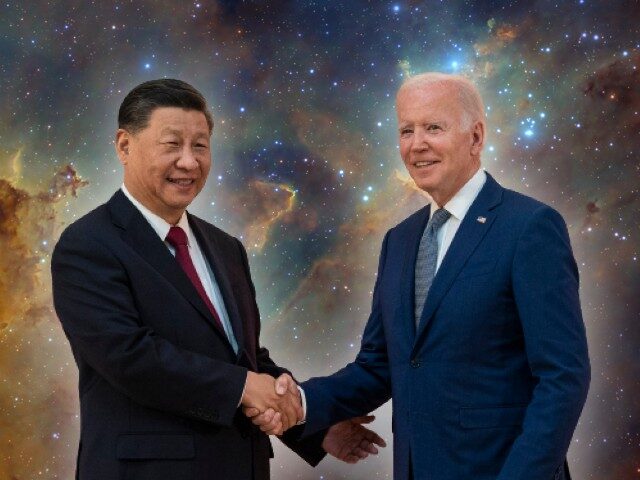United States Space Force Commander Gen. Chance Saltzman said Monday that collaborating on space exploration with China would reduce tensions between the two countries.
Saltzman told Reuters there have been “internal discussions” within the Biden administration about setting up a “direct line of communication” or “crisis hotline” between the U.S. Space Force and the China National Space Administration.
“What we have talked about on the U.S. side at least is opening up a line of communication to make sure that if there is a crisis, we know who we can contact,” he said.
Saltzman said it would be up to the Biden White House and State Department to negotiate such an arrangement with China. The Chinese might need some convincing since the Space Force established a branch in South Korea last year and held talks in Tokyo this week about opening a branch in Japan.
Beijing frequently complains that the United States is dragging South Korea and Japan into an anti-China alliance or “Asian NATO” because Washington is gripped by a “Cold War mentality” that sees China as the new Soviet Union.
Saltzman said close cooperation with South Korea and Japan was necessary to monitor China’s “gray zone activities” in space.
“We have to be able to have those indications and warnings and see what they’re doing and call them on the intent,” he said, which is both very reasonable and guaranteed to infuriate Beijing.
Gray zone activity is a Chinese specialty — essentially aggressive behavior that falls short of military provocation designed to exhaust China’s adversaries through the sheer effort of monitoring its mischief.
The most commonly cited example is China’s perpetual incursion of warplanes into Taiwan’s Air Defense Identification Zone (ADIZ), which burdens the much smaller Taiwanese air force with scrambling fighters to monitor China’s actions.
RELATED — TENSIONS IN THE SKY! China Fighter Performs “Aggressive” Fly-By in Front of U.S. Aircraft
Another example is China’s practice of harassing Philippine ships with water cannons and blinding lasers to keep them away from territory illegally claimed by Beijing in the South China Sea but never hitting a Filipino ship with anything that might sink it. The Philippine government has recently indicated that China is pushing the outer boundaries of the gray zone and coming closer to acts of war.
WATCH — HIGH-STAKES WATER GUN FIGHT! China Warship Fires Water Cannon at Philippine Coast Guard Vessel
China Coast Guard via StoryfulOuter space offers many opportunities for nation-states to be annoying jerks without throwing a solid punch. Advanced economies are increasingly dependent on vast networks of satellites that could be disrupted with a high degree of deniability.
The first Space Force chief of operations, Gen. John Raymond, described Earth’s orbit as a veritable playground for “irregular warfare” and recommended keeping a close eye on both Russia and China as they extend their gray zones into the outer darkness.
Raymond listed cyberattacks against orbital systems, physical interference with commercial space activity, and bullying activity in orbit as examples of irregular warfare in space.
All of those examples have already happened: Russia launched a cyberattack against a U.S. satellite company called Viasat at the beginning of its Ukraine invasion, and it jammed signals coming from Elon Musk’s Starlink satellite network over Ukraine, while China has lumbered around at very high altitudes in a manner intended to intimidate other nations from using orbital space coveted by Beijing.
No civilized nation would relish being the first country to declare war over provocative actions in space, so the space for gray zone activity is huge, and its elastic boundaries are easy to test. Every gray zone caper Beijing and Moscow get away with teaches them more about how to fight a real war in the heavens. The book on space war has yet to be written, but many authors are hard at work on its prologue.

COMMENTS
Please let us know if you're having issues with commenting.